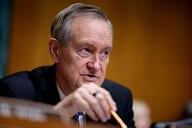You have /5 articles left.
Sign up for a free account or log in.
Massachusetts will soon track civic engagement at its public colleges, addressing increased concern that Americans aren’t equipped to impact their communities or interact meaningfully with government.
While it hasn’t been decided exactly how citizenship learning will be evaluated, the Board of Higher Education’s Tuesday vote mandates that civic engagement be measured along with more traditional standards such as graduation rates.
Higher education leaders, citing low voter turnout and other measures of civic engagement, have long doubted colleges do enough to prepare students to contribute to society. Eight state college systems now require students to receive some form of civic education, and some individual campuses have made citizen preparation a priority, said Carol Geary Schneider, president of the Association of American Colleges and Universities. She believes Massachusetts is the first state system to mandate that civic engagement at its two- and four-year public colleges be measured and compared to other states.
A January report published by the association tracks the status of civic education from a pillar of colleges in the immediate aftermath of World War II to being only a marginal goal of most institutions today.
Schneider attributes that partly to the mistrust that formed between academe and government during the Vietnam War. The report argues that colleges must re-emphasize civic engagement for the sake of the country.
Civic engagement is starting to gain broader support in higher education, Schneider said, but Massachusetts’s requirement takes that a step further. “It’s one thing to say we’re teaching this,” she said, “it’s another to say we intend to report the results and in doing so to put civic learning on the front page as an expected college outcome.”
Richard Freeland, the Massachusetts Commissioner of Higher Education, said Tuesday’s unanimous vote came after faculty members at several institutions pushed for a civic engagement component to the state’s Vision Project, which seeks to position the state’s public colleges among the nation’s best. By adding civic engagement to a list of five desired outcomes, including the percentage of high school graduates attending college and the percentage of students earning a degree, he believes colleges will focus more on making better citizens.
Some institutions within the Massachusetts system have already emphasized civic engagement. North Shore Community College has a Public Policy Institute that focuses on civic and community involvement, and Mount Wachusett Community College is planning a similar program. The University of Massachusetts at Amherst, the state’s flagship campus, has a Center for Digital Government. The new policy doesn't ask campuses to create their own research centers, like the Amherst program, but instead to measure the civic engagement of their students.
Tuesday’s vote didn’t specify how the state’s higher education department will track civic engagement, but Freeland has some ideas. The Department of Higher Education will have to adopt a plan by 2013.
But if Freeland were designing the program, he said it would contain a component emphasizing a basic knowledge of government, history, the Constitution and international policy. Colleges would also be evaluated on extracurricular opportunities for civic learning, including student government, and experiential learning such as students working on campaigns or registering voters.
Finding accurate measures and ways to compare those to other states will be challenging, Freeland said, but he believes the systemwide enthusiasm about the new requirement makes it possible. In addition to the unanimous support of the education commissioners, he said every campus president also supported the creation of a civic engagement outcome.
That interest is encouraging, said the AACU’s Schneider. Both she and Freeland believe Massachusetts could set a national precedent for civic engagement if the new requirement is implemented well. If that happens, Schneider said, the country will be better for it.
“This is the world’s most powerful democracy and, educationally, society has put democracy on autopilot and hoped for the best,” Schneider said. “For Massachusetts to take the lead on this is a very important portent of better things to come for our democracy.”




